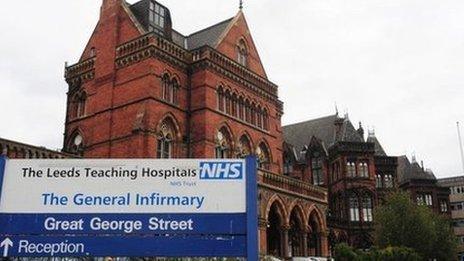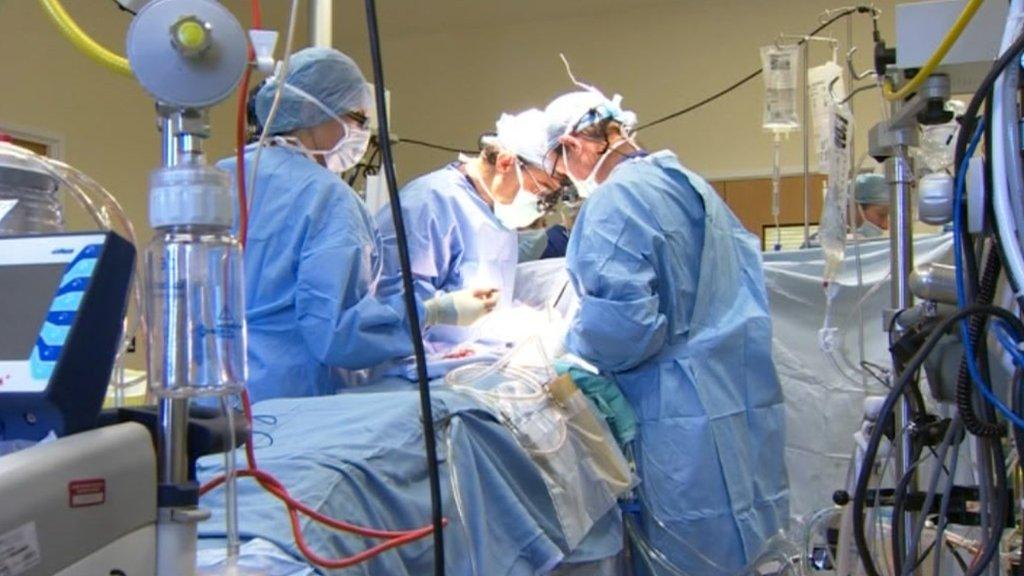Child heart surgery deaths in UK 'halved'
- Published

Children's heart surgery in the UK - often the source of bitter controversy - has improved significantly, a report has concluded.
The mortality rate within 30 days of an operation has fallen from 4.3% in 2000 to 2.6% a decade later.
In that time the number and complexity of the cases both increased, the study in the journal Open Heart showed, external.
The NHS in England is continuing its review into how child heart surgery should be organised.
Repairing the hearts of children born with congenital defects is one of the most complex procedures in the NHS.
The study showed the number of procedures increased from 2,283 in 2000 to 3,939 in 2009.
Acrimony
The discipline evokes strong passions, which erupted when plans were announced, and then shelved, to cut the number of hospitals providing the delicate surgery in England from 10 to seven.
Then in 2013, surgery was suspended at Leeds General Infirmary amid concerns about death rates.
Later, an investigation found the decision was based on "invalidated and incomplete data".
The suspension was also prompted by concerns raised by families and doctors at Newcastle upon Tyne NHS Foundation Trust, where child heart surgery is also carried out.
Professor Martin Utley, who conducted the UK-wide assessment of death rates at University College London, said the ongoing controversies meant we had "lost sight of the fact these are very good outcomes internationally".
He added: "I think one of reasons for concern is we are one of the few countries that are able to produce these numbers and publish them."
'Life-saving'
The study showed that death rates had halved despite "an overall rise in cases' complexity".
Prof Utley told the BBC News website: "The mortality rates are low, they've been falling and it is time to start looking beyond short-term survival.
"Many of the children who have these operations would not survive if they didn't have them. It's lifesaving, life-extending surgery.
"Thirty-day survival is a very useful measure, it is something concrete, but the outcomes that are really important are long-term survival and the function those kids have, how they get on at school and the extent to which they participate in life."
He said the improvements were driven by "lots of small incremental improvements across a range of procedures".
A spokesperson for NHS England said: "NHS England is undertaking a review of services for children and adults with congenital heart disease to ensure all patients receive high quality care wherever they live.
"We want consistent services across the country that meet the highest standards, and are able to offer resilient 24/7 care."
Professor Jeremy Pearson, from the British Heart Foundation, said: "Surgery for children born with heart defects has dramatically improved in the UK over the last 50 years, from a position where very few babies survived, to one where almost all do.
"This review of progress over the last ten years is highly reassuring."
- Published28 October 2014

- Published14 March 2014

- Published12 June 2013
